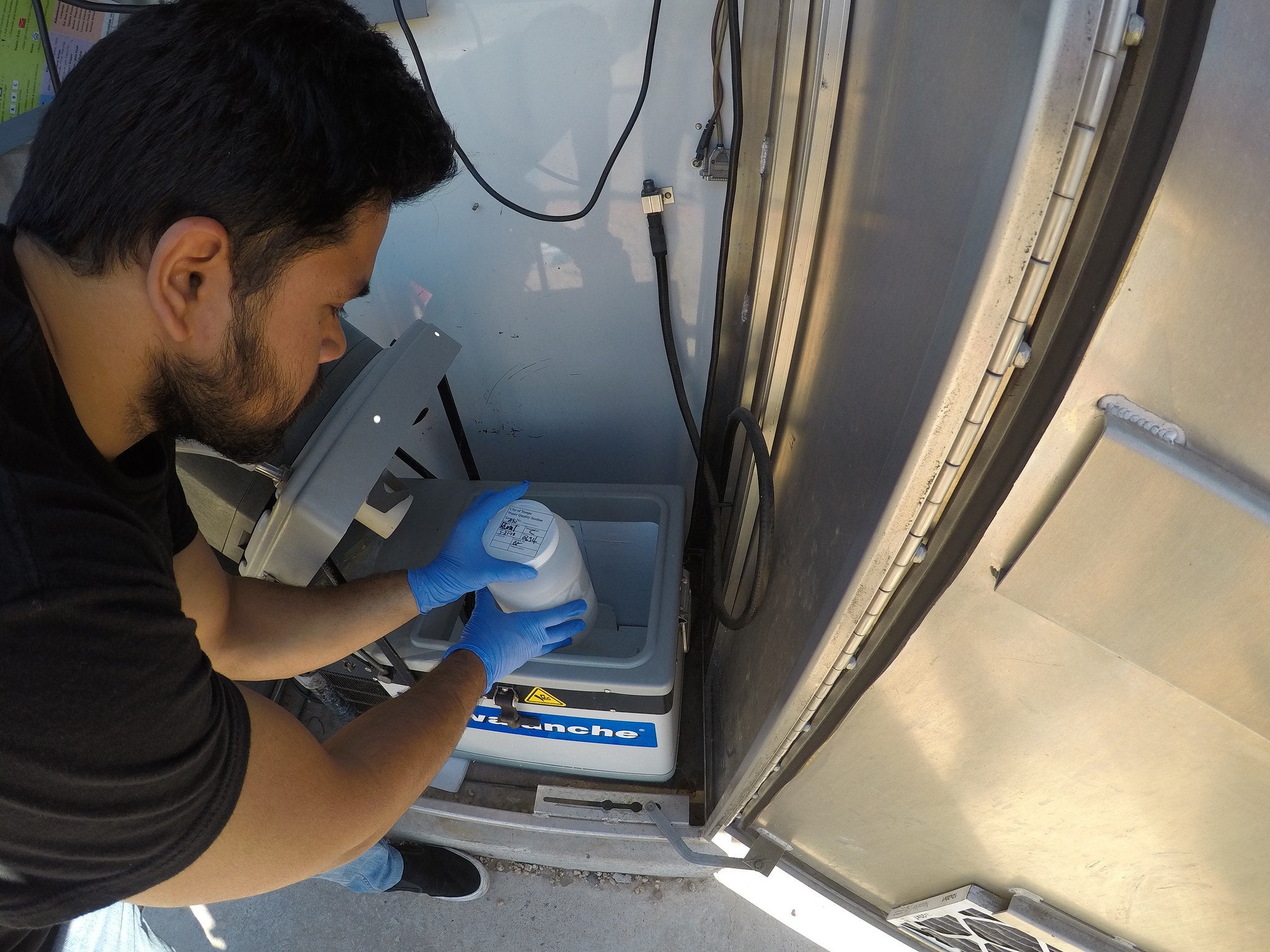The Tempe City Council announced Thursday that it will provide $35,000 from the Tempe Innovation Fund to embark on an anonymized monitoring system with Arizona State University scientists that will reveal the presence of opioids, cocaine, alcohol, marijuana and other health-threatening substances in the city’s wastewater. According to Tempe officials, the immediate goal of this new partnership is to achieve an end to opioid-related deaths and overdoses. The university will provide matching funds of $35,000.
ASU Biodesign Institute environmental engineer Rolf Halden and his lab will analyze sewage samples from the city, providing nearly real-time results that can help Tempe better serve its populace.
“Pairing the data from this wastewater program with the opioid map [a dashboard that documents public safety calls where use of opioids is likely] will help us pinpoint where to send the necessary resources to help people overcome addiction,” Tempe City Councilman Joel Navarro said. “This research could help save lives.”
Navarro is a firefighter who has seen the effects of opioid abuse firsthand. He is also chair of the Regional Opioid Action Plan Committee, a group of government representatives, nonprofit agencies, churches and health-care experts.
"With their vote, the city of Tempe has become the de facto thought leader in public health among cities across the United States,” said HaldenHalden is also director of ASU's Biodesign Center for Environmental Health Engineering , a professor in the Ira A. Fulton Schools of Engineering who will lead the effort.
Halden’s technology is being used in more than 300 cities across the world, but the Tempe project will be the first civic-university public health partnership — one in which the researchers and city officials will work together to extract data, review results and work collaboratively to refine the process, and identify and implement effective solutions.
LISTEN: Thought Huddle podcast — ‘We monitor what goes down the drain’
Because samples are taken from sewage lines carrying waste of thousands of people, the samples cannot be linked to any one individual. The anonymity of the process and detected drug types and quantities deliver results that are far more reliable than personal surveys or other methods.
“This is about the health of an entire city,” said Adam Gushgari, postdoctoral research associate in Halden’s Biodesign Center for Environmental Health Engineering. “As public health researchers and professional engineers, we study populations, not individuals. When we draw a sample of city wastewater, it always represents an anonymous composite from typically thousands to even hundreds of thousands of residents, with no way of linking obtained data to any one particular person.”
ASU PhD candidate Varun P. Kelkar retrieves a sample at the wastewater sampling point near a Packard parking structure on the Tempe campus Tuesday. Photo by Adam Gushgari/ASU
Halden’s Human Health Observatory is the largest archive of wastewater samples worldwide and has been used in the past to change U.S. policy. Halden’s team previously used wastewater and human cohort studies to bring to light the detrimental effects of harmful antimicrobials, such as triclosan and triclocarban. Following his call for national and international legal action, the Food and Drug Administration banned the use of these chemicals in personal-care products last September.
No additional sample collection is necessary for the Tempe project, as city public works staff already follow a regular schedule for compliance monitoring. With his lab on ASU’s Tempe campus, Halden’s team will receive the samples and provide results in near real time. Halden’s process uses tandem mass spectrometry, which can isolate and identify concentrations of specific opioids, including morphine, codeine, oxycodone, heroin and fentanyl. Measured concentrations of opioids are then converted to pounds per day per population to estimate the amount of drugs used in an area, the number of drug abusers and even the number of overdoses.
WATCH: Arizona PBS Catalyst — 'The dirty little secret of soaps'
With the addition of this project, Tempe could emerge as a role model for other cities across Arizona and the U.S. In addition to the new project, in February of this year, the city launched an Opioid Abuse Dashboard, which documents public safety calls where use of opioids is likely.
The wastewater data will be weighed alongside the Arizona Youth Survey’s report, which asks people age 18 and younger whether they use tobacco, alcohol, marijuana or other drugs.
For the 2017–18 fiscal year budget, the city of Tempe established a one-time, non-recurring Innovation Fund of $500,000, designed to encourage and promote new and creative ideas that significantly improve the community and position Tempe as an innovator.
Top photo: ASU PhD candidate Erin M. Driver examines a wastewater sampling point on the Tempe campus Tuesday. Photo by Adam Gushgari/ASU
More Health and medicine
ASU team part of nationwide study looking at Type 2 diabetes in youth
Near the end of an interview in which he talked about the work his team will be doing to tackle the rise in Type 2 diabetes among youth, Arizona State University Professor Gabe Shaibi answered why…
Leading the way in wellness: ASU highlighted in The Princeton Review's 2025 Mental Health Services Honor Roll
Being a college student isn’t easy — navigating new routines, people and places can be a challenge, especially if the right support system is not in place. That's why Arizona State University is a…
New Indigenous health dashboard offers robust database for scholars
By Nicole Greason and Kimberly Linn A team at Arizona State University’s College of Health Solutions and American Indian Studies program has created a new tool to aid researchers…

